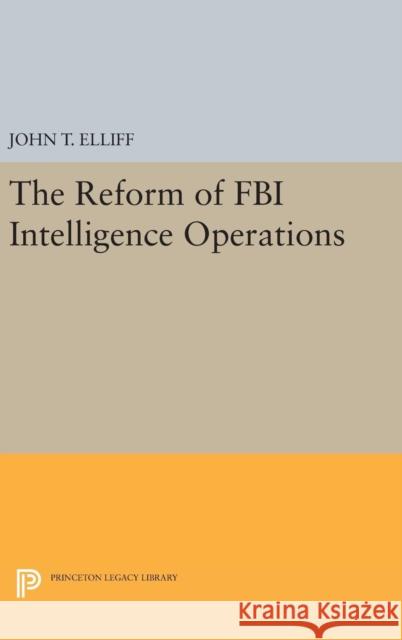The Reform of FBI Intelligence Operations » książka
The Reform of FBI Intelligence Operations
ISBN-13: 9780691637822 / Angielski / Twarda / 2016 / 262 str.
The Reform of FBI Intelligence Operations
ISBN-13: 9780691637822 / Angielski / Twarda / 2016 / 262 str.
(netto: 484,79 VAT: 5%)
Najniższa cena z 30 dni: 506,93
ok. 30 dni roboczych
Dostawa w 2026 r.
Darmowa dostawa!
Acts of terrorist violence and foreign espionage may pose a serious threat to the security of the United States; yet recent disclosures demonstrate the great risk in giving an agency such as the FBI unlimited authority for gathering intelligence about terrorists and spies. Taking into account the findings and recommendations of the post-Watergate inquiries into FBI operations, John Elliff analyzes the legal and policy questions posed by a "security police" in a nation committed to constitutional government and the rule of law. The author draws on his experience both as principal consultant for the Police Foundation's research on FBI intelligence operations and as head of the Church committee's congressional staff task force on domestic intelligence. He examines the changes made in the structure and policy framework for FBI intelligence operations, including issues not fully resolved by reorganization and new guidelines. He also covers the standards and procedures for dealing with misconduct by FBI personnel. Dr. Elliff concludes that the present restrictions on FBI activities are necessary and that close supervision and control by the Attorney General will allow the Bureau to operate effectively without depriving law-abiding persons of their privacy or their freedom.Originally published in 1979.The Princeton Legacy Library uses the latest print-on-demand technology to again make available previously out-of-print books from the distinguished backlist of Princeton University Press. These editions preserve the original texts of these important books while presenting them in durable paperback and hardcover editions. The goal of the Princeton Legacy Library is to vastly increase access to the rich scholarly heritage found in the thousands of books published by Princeton University Press since its founding in 1905.











